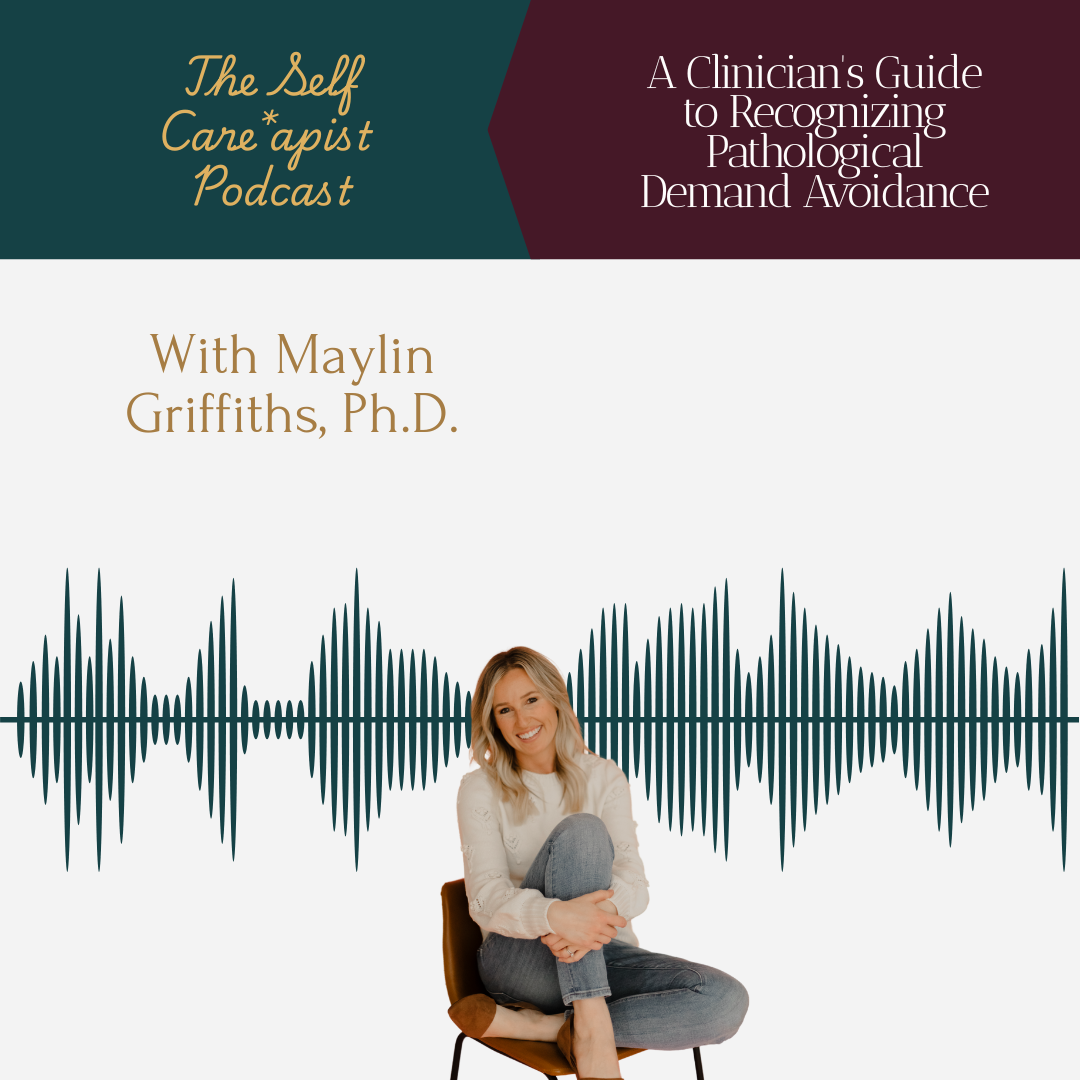Pathological Demand Avoidance (PDA) is often misunderstood, misdiagnosed, or entirely overlooked—especially in clinical settings that rely heavily on surface-level behavioral presentations. In this episode of The Self Careapist Podcast, psychologist Dr. Maylin Griffiths unpacks what PDA really looks like and how clinicians can get curious when the puzzle pieces don’t fit.
Whether you’re working in pediatric mental health, therapy for professionals, or supporting high performing adults navigating complex childhood histories, understanding PDA can shift the way you assess, relate, and intervene.
When “Oppositional” Isn’t Quite Right
For many families, a PDA profile shows up after years of struggle, multiple diagnoses, and treatments that didn’t work. A child may have been labeled with ADHD, ODD, anxiety, or mood disorders, but interventions fall short—sometimes even making things worse.
Dr. Griffiths shares how PDA often masquerades as defiance, when in reality it reflects a pervasive drive for autonomy, not pathological oppositionality. This demand sensitivity can manifest in:
- Refusing ordinary requests
- Extreme need for control
- Social scripts and role-play
- Emotional explosions that appear “out of nowhere”
In a traditional model, these behaviors are misunderstood. In a strength-based, whole-person assessment, they’re the keys to accurate support.
Clinician Tips for Strength-Based Assessment & School Collaboration
Dr. Griffiths describes that understanding a child’s presentation is even more valuable than providing a diagnosing alone.
For More Complete Assessments:
- Zoom out before zooming in; If the diagnosis doesn’t make sense, it probably isn’t right.
- Go outside the office; Talk to teachers, pediatricians, therapists, and family. Include all voices.
- Get curious about the “why“; Behaviors are driven by function, not always pathology.
- Watch for mismatch; Sometimes the “problem” is a misfit between child and system.
- Look for profiles, not just labels; A diagnosis might not tell the whole story.
- Reduce unnecessary demands during testing; Use “we” language, humor, and indirect prompts to reduce stress.
For Collaborating with Schools:
- Attend the meetings; Showing up to IEPs and 504s can shift the whole conversation.
- Be a data advocate; Clarify what’s needed and why based on the full picture.
- Collaborate, don’t confront; Ask curious questions:
“What would feel most supportive in your classroom?”
“What small shifts could we realistically make?” - Prioritize what’s possible; Work with the teacher to distill accommodations to what’s actionable.
- Support the system, not just the child; Teachers and schools need help too.
These tips apply not only to children with PDA—but to any child (or adult) who’s been misunderstood by systems that weren’t designed with them in mind.
What Pathological Demand Avoidance Can Teach Us
Pathological Demand Avoidance (PDA) is often misunderstood as simple defiance, but Dr. Griffiths explains that it is better understood as a pervasive drive for autonomy. These children are not being manipulative, they are “equalizing,” using strategies like negotiation, avoidance, humor, or even role-playing to reduce the weight of demands.
In her practice, Dr. Griffiths has seen how PDA can look like ADHD, ODD, or anxiety, but standard interventions often make things worse. Sticker charts, exposure therapy, or strict behavior plans can escalate distress rather than resolve it. Instead, progress comes from reducing unnecessary demands, shifting language from “you” to “we,” and aligning with the child as a teammate.
PDA also shows up in ways that surprise families and schools:
- Children who seem socially skilled but struggle with hierarchy, treating teachers and parents as equals.
- Intense mood swings or shutdowns when demands become overwhelming.
- Role-playing or adopting personas in different settings, masking challenges until they’re at home.
The takeaway: When nothing else is working, lean on curiousity. By reframing behavior as adaptive and looking beneath the surface, clinicians and families can create more supportive environments where these children’s strengths—creativity, leadership, humor—have space to emerge.
Key Takeaways from the Episode
- PDA is a deep neurological need for autonomy
- Standard behavioral approaches may backfire with PDA profiles
- Strength-based assessments can reshape trajectories for misunderstood kids
- Curiosity is a clinician’s superpower when standard models fall short
Listen to the Full Episode
A Clinician’s Guide to Recognizing Pathological Demand Avoidance on The Self Careapist Podcast
Available on Apple Podcasts | Spotify | LorainMoorehead.com
Lorain Moorehead is a therapist and clinical supervisor known for providing advanced consultations in EMDR and providing therapy for high achieving adults in Scottsdale, Arizona.

+ show Comments
- Hide Comments
add a comment